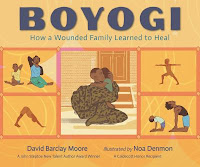May is Mental Health Awareness Month, a national observance focused on raising awareness about mental health and well-being. Mental Health Awareness Week is May 12-16 and serves as an opportunity to reduce stigma and promote resources for mental health support. The theme of Mental Health Awareness Month for 2025 is “Turn Awareness Into Action”.
These picture books from our collection address mental health struggles with easy to understand vocabulary and engaging illustrations.
Overthinkers young and old will enjoy this beautifully illustrated picture book that asks whether other people have extensive internal dialogs, question their choices, and worry if they've inadvertently caused offense or been misunderstood.
Author Jessica Whipple says she wrote I Think I Think A Lot for people like herself who are managing obsessive-compulsive disorders and to share a bit of her own experience as a child who was obsessed with "being good."
I have big feelings.
You have them, too.
How can I help?
What can we do?
This rhyming picture book can help young children better manage emotional challenges like fear, anger, and nervousness. Colorful illustrations show children of all kinds helping each other work through common struggles.
Young Olivia visualizes the anxiety she experiences over dentist appointments, spiders, and conflicts with friends as prickly vines that prevent her from enjoying herself at school and during other activities. When breathing exercises for managing anxiety don't work, a sensitive teacher suggests that Olivia visualize herself chopping down the pesky vines. Children will enjoy the colorful illustrations that depict Olivia imagining herself chopping through the vines with strategic karate kicks and gardening tools.
Butta Bean wonders why his father isn't the same since he came home from distant travels. He worries when his father has frequent nightmares, acts angry, and wants to spend time alone.
Boyogi uses thoughtful language that young children can understand to show a family working though trauma and using yoga techniques and positive thinking to reconnect and begin healing.
Alicia Cavitt
Information Specialist





No comments:
Post a Comment